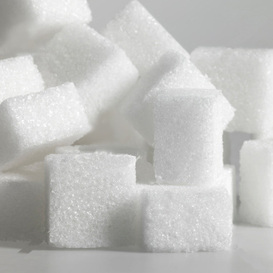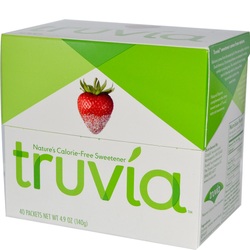Food writer and holistic health counselor Melissa Beveridge weighs in on the less-than-sweet facts about sugar.

Veganism, when properly applied, focuses on eating whole foods. Very low levels of sugar, if any, are included in the diet. However with veganism’s recent popularity, food suppliers and restaurants are jumping on the bandwagon, and sometimes it’s not in favor of the true (healthful) vegan lifestyle.
Just as there are unhealthy carnivores and vegetarians, there are unhealthy vegans who live off vegan chips, cupcakes, and French fries. “Vegan” does not necessarily mean healthy—and vegans who subsist on fried, sugary, high-fat fare can be undernourished and overweight.
Just as there are unhealthy carnivores and vegetarians, there are unhealthy vegans who live off vegan chips, cupcakes, and French fries. “Vegan” does not necessarily mean healthy—and vegans who subsist on fried, sugary, high-fat fare can be undernourished and overweight.
When buying convenience foods that advertise gluten-free, vegan, raw, etc., beware of those that are processed, as many contain added sugar. Whether it’s Stevia, agave, or raw sugar, it's still sucrose. Plus, these foods often contain high amounts of sodium. (They have to make it taste good and last, so what better way than with salt and sugar!)
Don’t believe me? Check out the ingredients of your favorite soymilk. Odds are, there’s some sort of sugar in there. Despite its “natural-looking” label (a marketing ploy), it’s not that great for you, at least in large amounts. Turn the package around and see what it’s really made of—then you can decide if it’s worth paying for, with your wallet and your health.
Don’t believe me? Check out the ingredients of your favorite soymilk. Odds are, there’s some sort of sugar in there. Despite its “natural-looking” label (a marketing ploy), it’s not that great for you, at least in large amounts. Turn the package around and see what it’s really made of—then you can decide if it’s worth paying for, with your wallet and your health.

Let’s focus on sugar, which we know is both addictive and unhealthy. Now there’s Stevia, a plant that’s been ingested for centuries in Asia and South America. The leaves of the Stevia Rebaudiana plant taste 10 to 15 times sweeter than sugar and are used in products such as Truvia and Pure Via. In 2008, the FDA approved the extract from the Reba plant as safe. Other forms of the plant have not been approved, including the whole leaf and crude form. Stevia extract is highly refined using acetone and ethanol and is usually combined with dextrose from GMO corn to mask the refined taste. What’s all the hype about Stevia? Many studies have found it doesn’t raise blood sugar; a 2010 study showed there was no increase in food intake after consuming Stevia.
Added sugar in a person’s diet brings on a long list of health concerns, including cardiovascular disease and diabetes. Thanks to savvy marketing, many people think they’re eating healthfully, when in reality, their favorite granola, soy milk, and juice all contain hidden sugars. The best way to minimize sugar in your diet is by eating whole, unprocessed foods. Yes, you can do it! There are countless recipes in The Vegan Cheat Sheet that are simple and tasty without worrying about all those mysterious and unpronounceable ingredients on the label! (My rule of thumb: If you can’t pronounce it, don’t eat it!)
Remember, just because you associate yourself with a lifestyle doesn’t mean you’re living the lifestyle. Live the lifestyle of a vegan, vegetarian, whatever you associate with, by not taking the shortcut with processed foods. You deserve better!
Check out Melissa's articles, advice, and recipes at mbeewell.com.
Remember, just because you associate yourself with a lifestyle doesn’t mean you’re living the lifestyle. Live the lifestyle of a vegan, vegetarian, whatever you associate with, by not taking the shortcut with processed foods. You deserve better!
Check out Melissa's articles, advice, and recipes at mbeewell.com.
 RSS Feed
RSS Feed